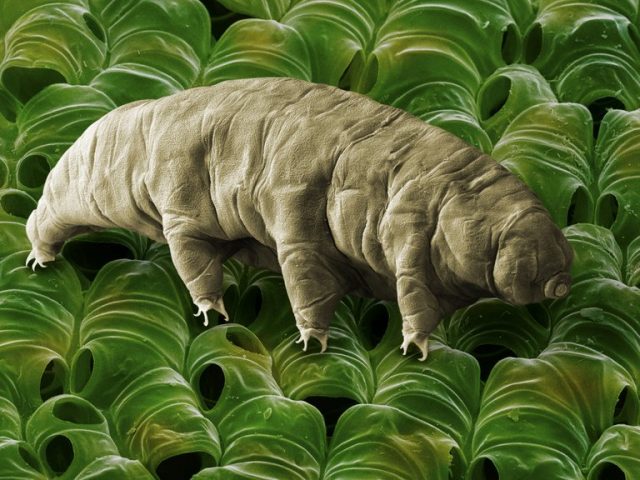MI weekly selection #224

Special genes help tardigrades survive desiccation
The sturdy tardigrade, or water bear, can survive desiccation for years, pulling itself into its exoskeleton and rolling up into a ball. Unique genes create tardigrade-specific intrinsically disordered proteins that protect the water bear’s cells when the creature is dried out.
Parentage of ancient rocks traced
Researchers are learning about some of Earth’s earliest rocks by studying younger rocks’ genealogy. Scientists sussed out the parentage of 2.7-billion-year-old rocks by examining an atomic tracer in their minerals.
Inflammation drives gut bacteria evolution
A bacterial infection that causes inflammation in the gut can spur phage transfer, promoting colonization. The researchers also found that vaccinating the mice with inactivated Salmonella not only protected them but reduced the phage transfer.
Section of Salmonella bacterium genome recoded
Scientists have recoded a portion of the genome of the Salmonella bacterium in a process that may one day lead to the creation of unique proteins and help produce new drugs and vaccines. Researchers are looking to recode complete genomes so they can give the proteins they produce new properties different from anything that lives on Earth.
Experimental blood test may aid in autism diagnosis
An experimental blood test yielded 97.6% accuracy in diagnosing children with autism spectrum disorder and 96.1% accuracy in determining those without ASD, researchers reported in PLOS Computational Biology. The findings were based on blood samples from 159 children ages 3 to 10.